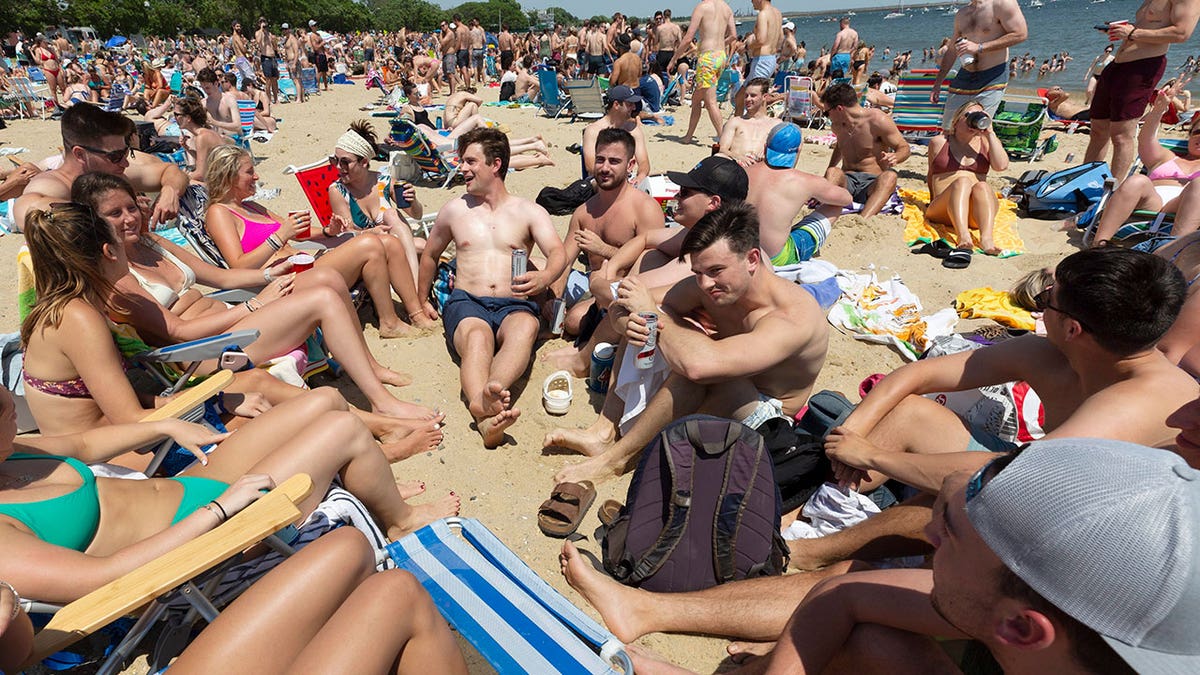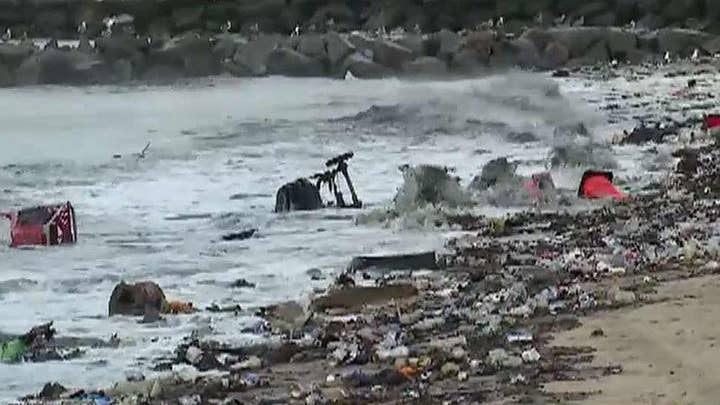Tens of thousands of palm trees dying from bacterial disease
It is caused by a small insect and may impact Arizona and California
Bacterial infections are plaguing beaches across the U.S.
The infections have shut down beaches in New York, Ohio, New Jersey, Washington state and Massachusetts.
FLORIDA BEACHES SEE NEARLY 800 TONS OF DEAD FISH, SEA LIFE WASH ASHORE
A recent report from Environment Massachusetts found that, of 556 Massachusetts beaches, 264 had been unsafe for swimming at least one day last year.
However, toxic bacteria – including the flesh-eating kind – keeping swimmers out of the water is nothing new.
Contaminations have shuttered beaches for decades and The Weather Channel reported Saturday that summer weather and rainfall can lower salinity in bodies of water and make them more hospitable to bacteria.
Pollution, climate change and other factors can alter the water around U.S. beaches.

Crowds gather on L Street Beach, Saturday, June 5, 2021, in the South Boston neighborhood of Boston. (AP Photo/Michael Dwyer)
According to the Environmental Protection Agency (EPA), pollution from overflows, runoff, ships and boats, trash, sunscreen and harmful algal blooms regularly impact beach health.
Natural Resources Defense Council (NRDC) data shows that up to 3.5 million people become sick due to contact with sewer overflows every year.
Stormwater, pesticides, fertilizers and animal feeding operations are often culprits as polluted water flows into drains, rivers, lakes streams and oceans.
The EPA reports that through 2018 the total generation of municipal solid waste was 292.4 million tons, or 4.9 pounds per person per day.
Any trash not recycled or properly discarded can reach beaches during storms. Trash may be left behind by people on beaches and fishermen often lose or throw fishing nets and lines into the ocean, disrupting ecosystems.
MEXICO'S RAW SEWAGE STILL POURING INTO CALIFORNIA COASTAL CITIES: REPORT
Ships and boats can also pollute waters with discharges including ballast water, bilgewater and water from sinks and showers.
Beachgoers wearing sunscreen can also threaten corals and marine life when they enter the water due to chemicals in the product.
Algal blooms like Florida's recent red tide are usually naturally occurring, though still just as damaging.
While overflows from rain and melting snow are also a natural process, climate change has increased snowmelt and that water can often upset sewers with raw sewage and industrial wastewater from overflows, leading to beach closings, shellfish bed closings and aesthetic problems.
There are at least 23,000 to 75,000 sanitary sewer overflows per year in America.
The presence of harmful bacteria in beach waters has both medical and economic consequences.
The NRDC found that Americans take more than 900 million trips to coastal areas and spend around $44 billion on those trips every year. In a 2013 report, the agency discovered that more than 80% of beach closings were due to bacteria levels.
Contaminated water can affect air quality in addition to polluting ocean shores.
CLICK HERE FOR THE FOX NEWS APP
Typical maladies include upset stomach, respiratory ailments, pinkeye, earaches, meningitis, hepatitis and even neurological disorders.
People with compromised immune systems, small children and seniors may be at risk of death.
The Associated Press contributed to this report.












































